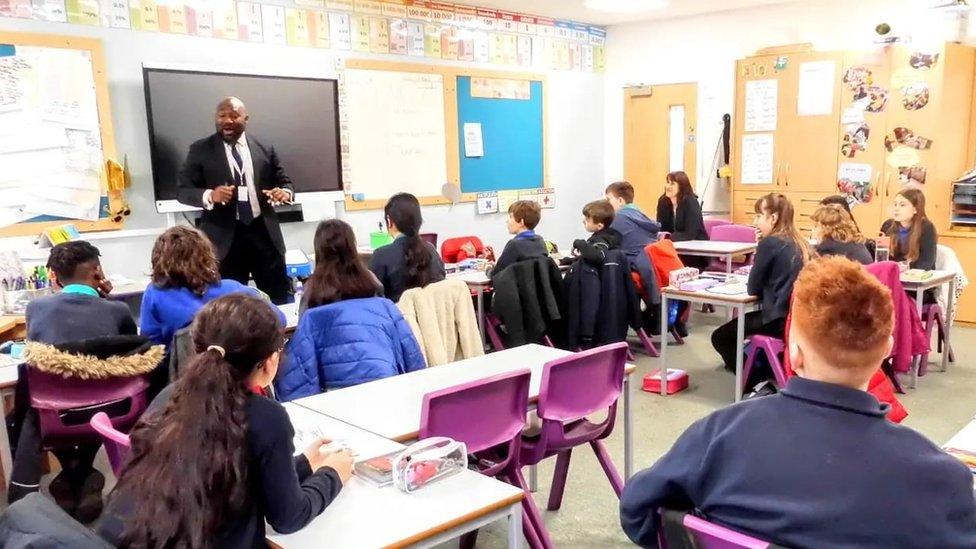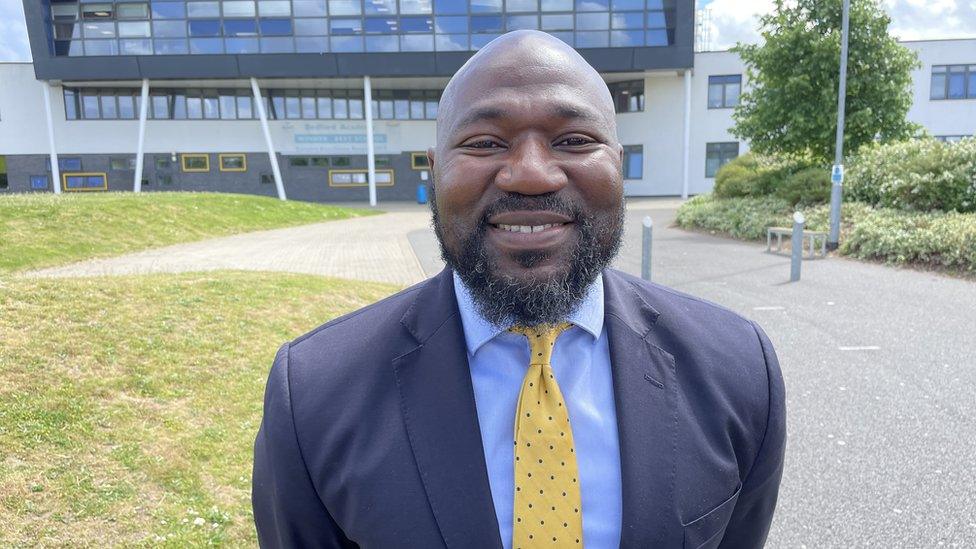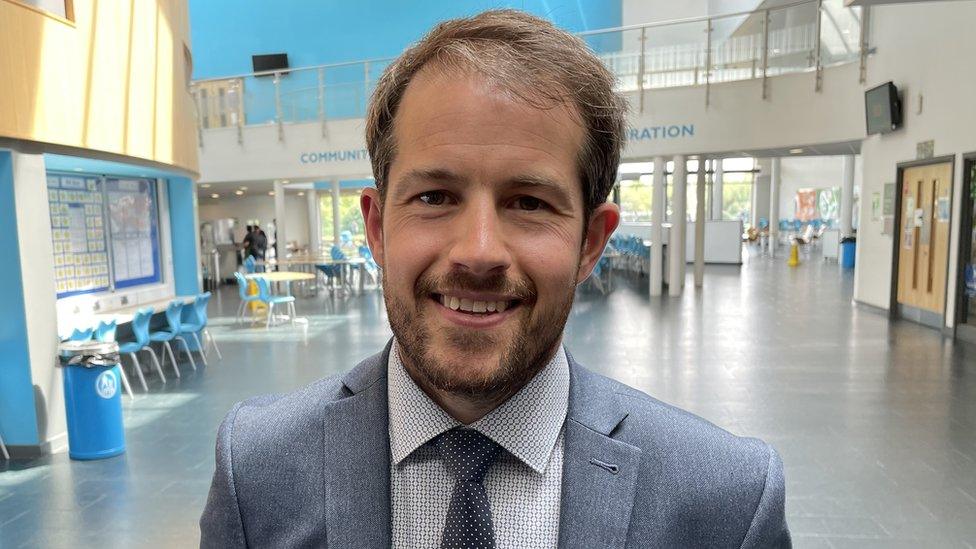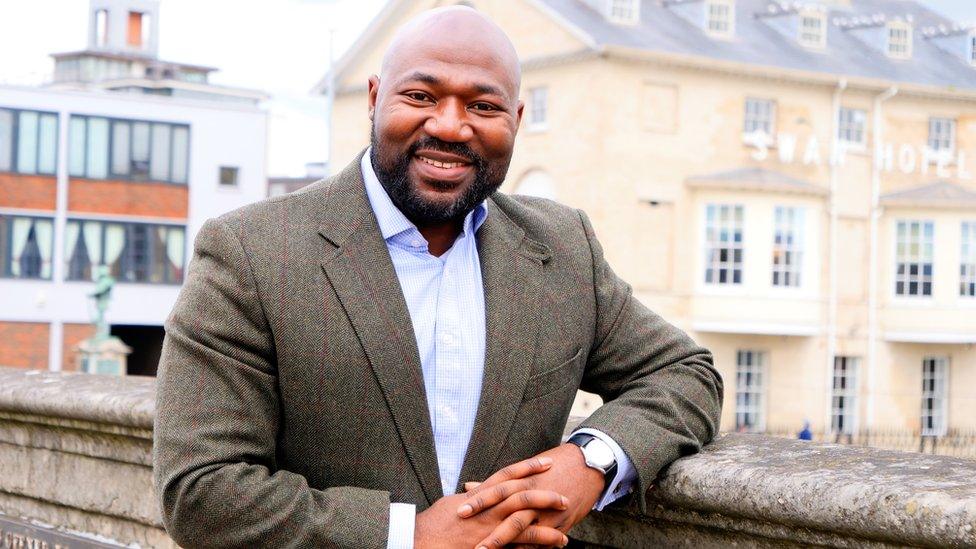Bedfordshire PCC's bid to stop absent pupils 'falling prey' to gangs
- Published

Festus Akinbusoye said an "early intervention approach" to school absence was "crucial" to prevent pupils "falling prey" to gangs
Youth workers will visit the homes of pupils who are absent from school in a bid to prevent them "falling prey" to gangs, a police commissioner said.
Bedfordshire police and crime commissioner, Conservative Festus Akinbusoye, will pilot the scheme at six secondary schools in the county.
Mr Akinbusoye said 90% of young offenders had been "persistently absent from school".
To prevent this an "early intervention approach" was "crucial", he said.
The absent pupils would receive home visits within hours of them not turning up at school, Mr Akinbusoye said.
He said 65% of young people involved in a homicide had school absence as "one of the common themes in their backstory" and 83% of young knife offenders had been persistently absent from school.
"This is a disturbing trend," he added.

Mr Akinbusoye said more action was needed to tackle school absences
Mr Akinbusoye said the current approach to absent pupils was "not working".
He said approximately 1.8 million children missed at least 10% of their schooling in the autumn term of 2021/22, and about 122,000 missed half of school.
It was also estimated 135,000 children had not returned to school since the beginning of the academic year.
"The fact that a child can be absent from school for any period of time in Britain today, without anyone setting eyes on the child or visiting their home, despite phone calls or text messages to a responsible adult, is no longer tenable," he said.

'It will be a great help'

Deputy head of Bedford Academy, Pete Roberts, said the school was trying to improve absence numbers
Pete Roberts, deputy head of Bedford Academy, said since the pandemic "a larger than expected number of students" were "persistent absentees".
"We've tried lots of things to try and improve that," he said.
"But any extra help from this pilot scheme would be greatly received."
Mr Roberts said he and the school's attendance officer go out once a week to visit the homes of those who have less than 90% attendance, but they would like to do more.
"To have lots more resources, and quality resources, would be a great help," he said.
"If we've got concerns we won't have to wait until our once a week check."
"If we improve one attendance, that's one student that's less vulnerable out on the street potentially at risk of being linked in with crime or being exploited by a gang - that's impact for us."

Mr Akinbusoye said when a pupil was absent from school a home visit would be carried out by youth intervention service staff from the Home Office-funded Violence and Exploitation Reduction Unit, external.
"The objective of the visits is to enhance the process of getting the young person back into education or training, while also determining their welfare and home situation," he said.
"Too many of our young people are becoming victims or perpetrators of homicides and other violent crimes due to them falling prey to exploitative county lines gang 'elders' when they miss out on education."

Find BBC News: East of England on Facebook, external, Instagram, external and Twitter, external. If you have a story suggestion email eastofenglandnews@bbc.co.uk, external
Related topics
- Published26 May 2021

- Published7 May 2021
